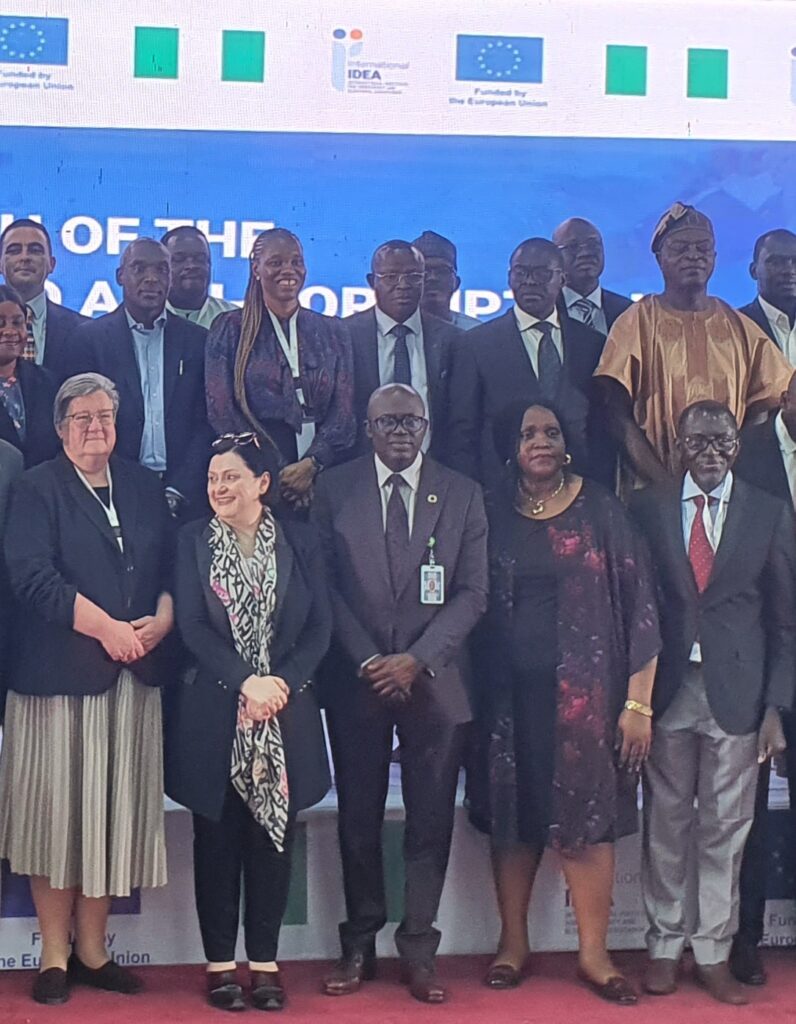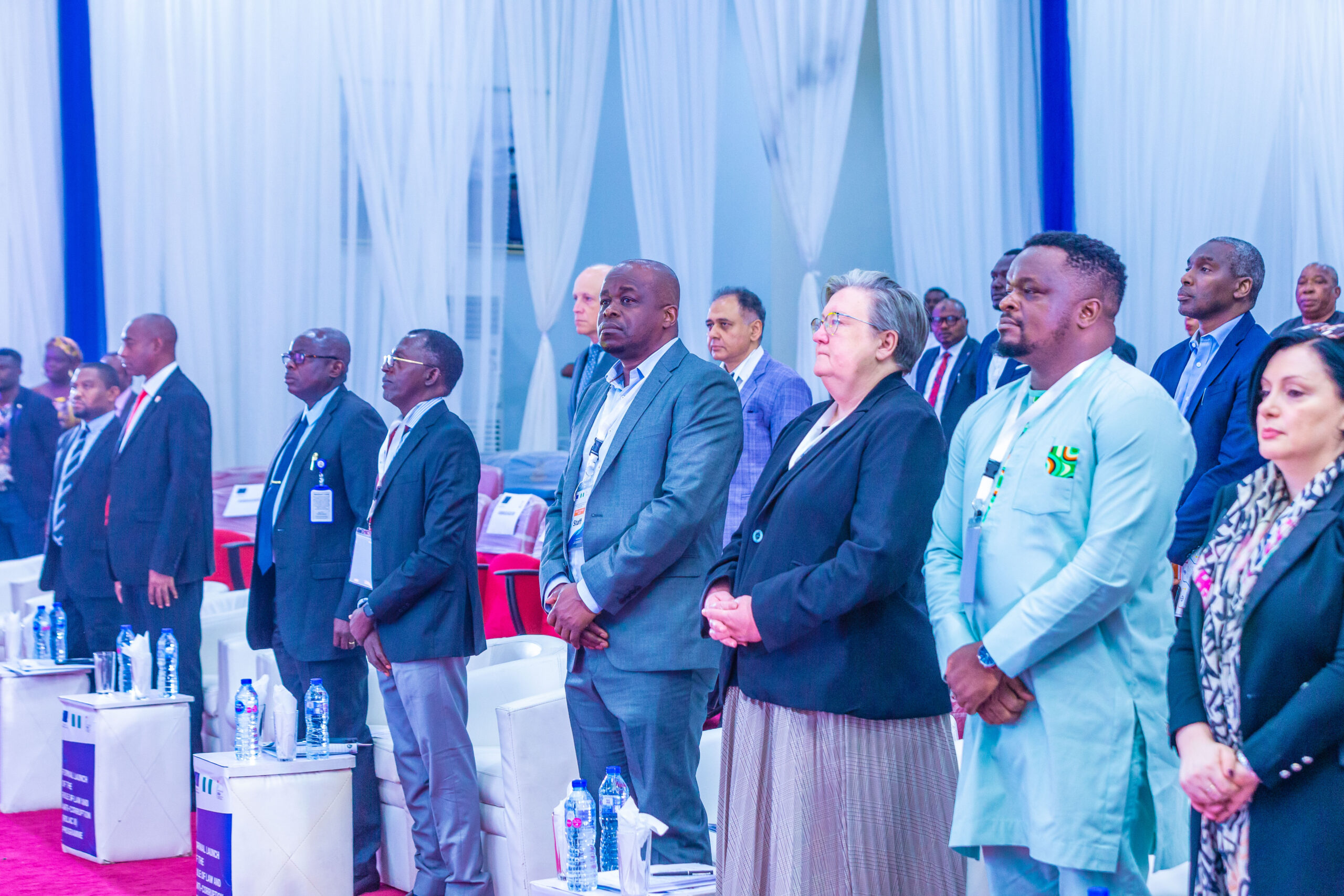•We’ve spent €88m to support Nigeria’s anti-corruption efforts since 2005-EU
•Says 35 states commit to VAPP Act
Gift Wada
The European Union has said it had spent a total of 88 million euros to support Nigeria’s anti-corruption efforts since 2005, even as it announced another 30 million euros to improve Rule of Law, tackle corruption, and reduce gender-based violence in the country for the next five years.
This came as it disclosed that 35 states and the Federal Capital Territory (FCT) have so far domesticated the Violence Against Persons Prohibition (VAPP) Act 2015 to curb incessant cases of violence across states.
The EU Ambassador and Head of Delegation to Nigeria and ECOWAS, Samuela Isopi stated this yesterday in Abuja at the formal launch of the Rule of Law and Anti-Corruption (ROLAC Phase II) Programme, implemented by the International Institute for Democracy and Electoral Assistance (International IDEA) and funded by the European Union.
According to Ambassador Isopi, the program is aimed at supporting the strengthening of the rule of law and the fight against corruption as well as reducing gender-based violence while promoting respect for human rights and ensuring inclusivity for all Nigerians.
While explaining that 1.5million Nigerians were affected in the first phase of the program, the diplomat said the second phase which would run for five years, would be implemented in five states of Adamawa, Anambra, Edo, Kano, and Lagos, and the Federal Capital Territory (FCT), with the possibility of extension to two more states.
The envoy said, “The program would be implemented by the International Institute for Democracy and Electoral Assistance (International IDEA) and funded by the European Union”.
The EU Ambassador highlighted the achievements of the first phase of the program including setting up and strengthening policies and processes; increased implementation and compliance with the Administration of Criminal Justice law; increased inter-agency cooperation in the fight against corruption and creating synergies between government and civil society organizations; increased access to justice for survivors of Sexual and Gender Base Violence, through the establishment of sexual assault referral centers and Special GBV courts as well as improved protection of the rights of children.
The second phase of the program, she noted, will focus on criminal justice, prison reform, curbing sexual and gender-based violence as well as strengthening and implementing anti-corruption policies and tools.
She explained that the major obstacle to an effective war on corruption in Nigeria is enforcement, even as she expressed support for the country’s anti-graft crusade.
“Corruption is a challenge in Nigeria, and indeed in many countries of the world, as it undermines good governance and human rights, and contributes to poverty. It is proven that corruption undermines the foundations of democratic institutions and represents a major barrier to social and economic growth.
“Corruption weakens the trust of citizens in democratic institutions and indeed threatens stability. It varies in nature and extent, but it affects all countries.
“The fight against corruption is therefore a fundamental part of the EU agenda, internally and externally, and is a priority in our engagement with partner countries.
“The new Administration has identified the fight against corruption as one of its priorities. This will be vital for the economic and political future of the Nation,” she stated.
On his part, the Head of the Programme, Nigeria International IDEA, Danladi Plang said the overall objective of the RoLAC Phase II is the consolidation of the rule of law and anti-corruption reforms in Nigeria.
Plang named Kano as the only state in Nigeria yet to domesticate the VAPP Act.
Specifically, he said the program will target and support enhanced performance, quality, and oversight of the criminal justice system and justice service delivery, improved access to justice for vulnerable women, children, juveniles, persons with disabilities, and victims of sexual and gender-based violence and increased transparency and accountability of anti-corruption systems and reforms.

In his goodwill message, the Minister of Budget and Economic Planning, Abubakar Bagudu, noted that RoLAC Phase Il “identifies with the vision of the National Development Plan 2021-2025 for promotion of full participation of women in the economy as a strategy to substantially improve socio-economic indicators such as GDP growth, employment generation, and poverty reduction”.
Represented by Dr Lanre Adekanye, the Minister noted that the implementation of Phase Il is expected to have a robust coordination structure involving the Justice and Anti-corruption institutions, to increase their participation in the development and management of the anti-corruption and justice reform agenda.
Also, the Attorney General of the Federation and Minister of Justice, Lateef Fagbemi, SAN, commended the leadership of the Rule of Law and Anti-Corruption (RoLAC II) Programme for their robust interface and quality programs targeted at nation-building.
Represented by Victoria Ojegbane, Director of Planning Research, and Statistics at the Ministry, Fagbemi said the outcomes captured under the program will further bridge the gaps in Criminal Justice and Administrative Reform and enhance systems and structures in the Justice sector.
n her welcome remarks, Executive Director International Institute for Democracy and Electoral Assistance (International IDEA), Fiona Rowley explained that ROLAC Phase II is an EU project funded under its Neighbourhood, Development and International Cooperation Instrument (NDICI-Global Europe; and implemented by International IDEA.
She said: “ROLAC II will contribute to support Nigeria meet some of its global commitments, e.g., to the SDGs; and to realise its national aspirations as contained in the National Development Plan, the National Justice Policy, National Anti-Corruption Strategy among others. It is significant that fighting corruption and strengthening the rule of law are 2 of the 8-point agenda of the current administration at the federal level.”
She said the launch is to formally introduce the programme to the Nigerian public especially the key partners. It is also to get the commitment of partners to actively support its implementation and cooperate with the implementing agency – International IDEA.

